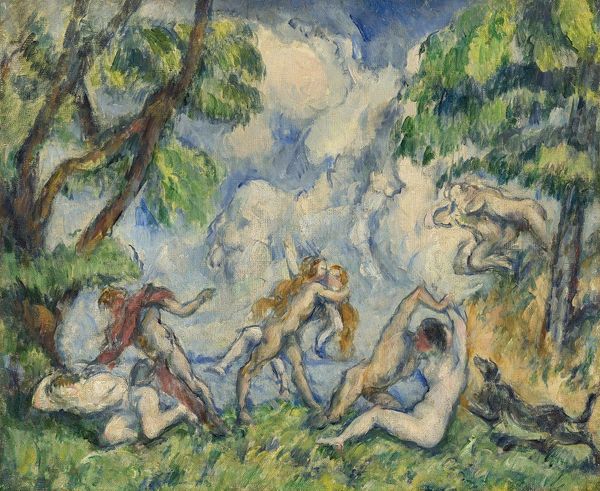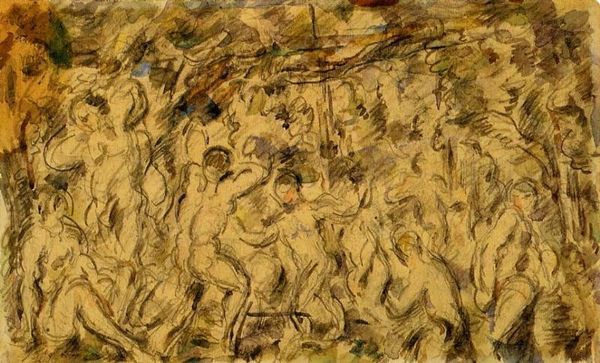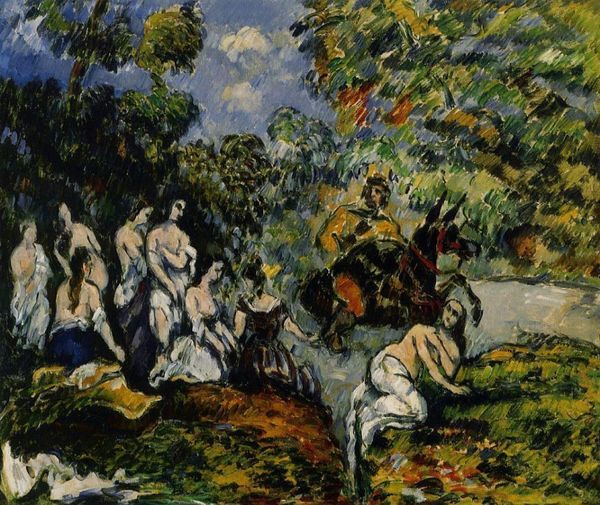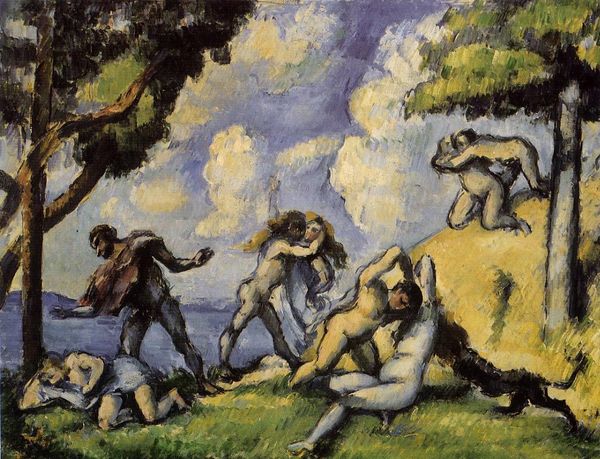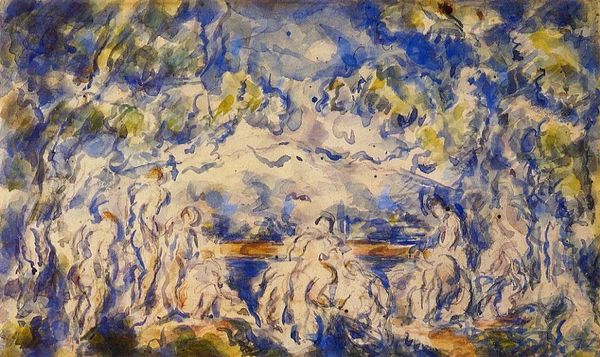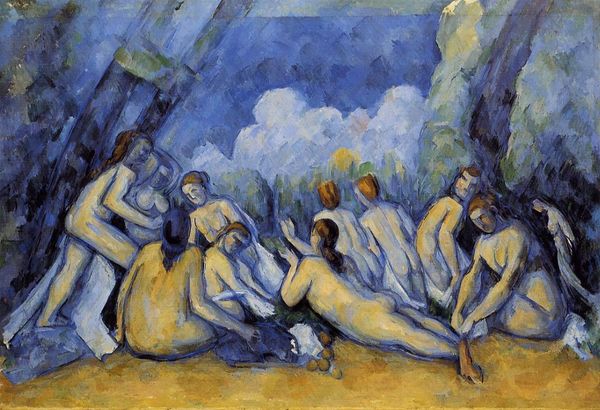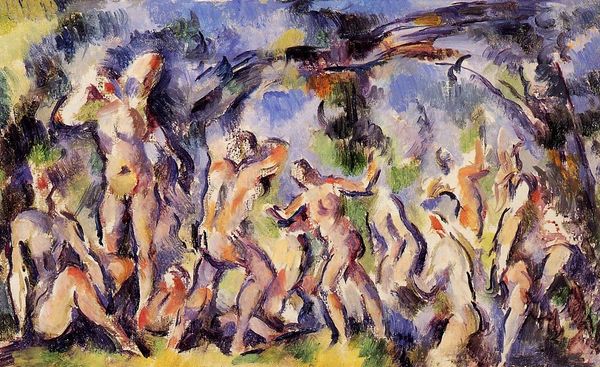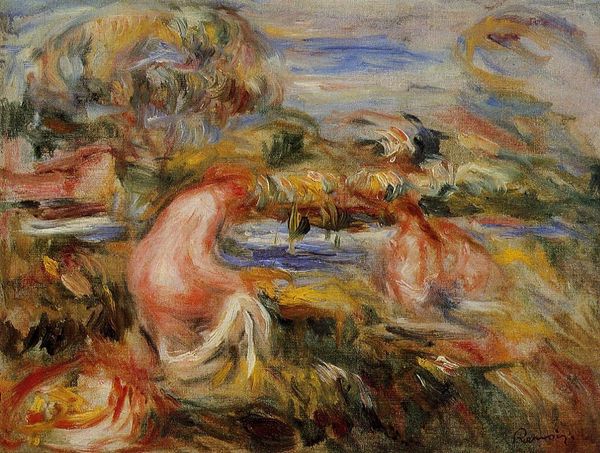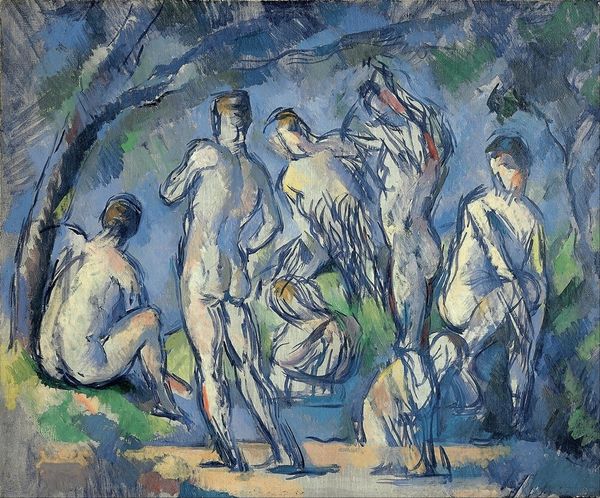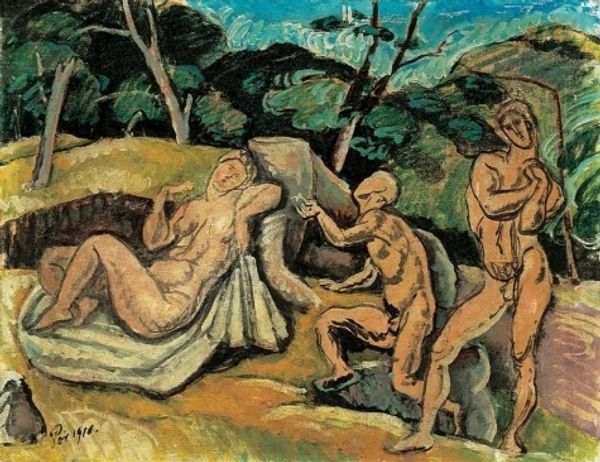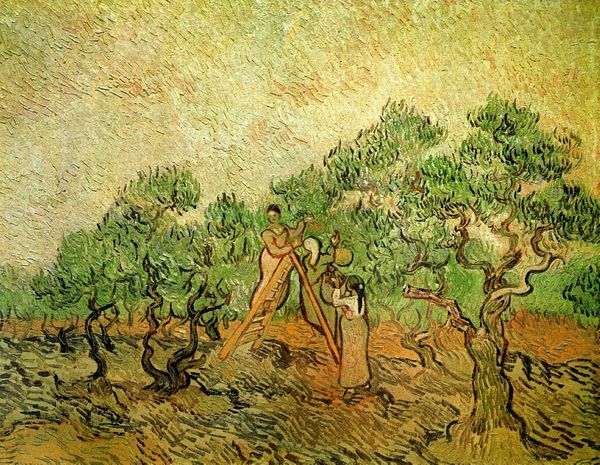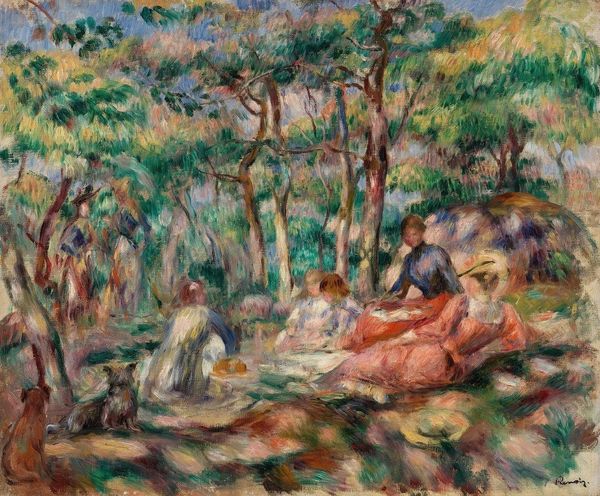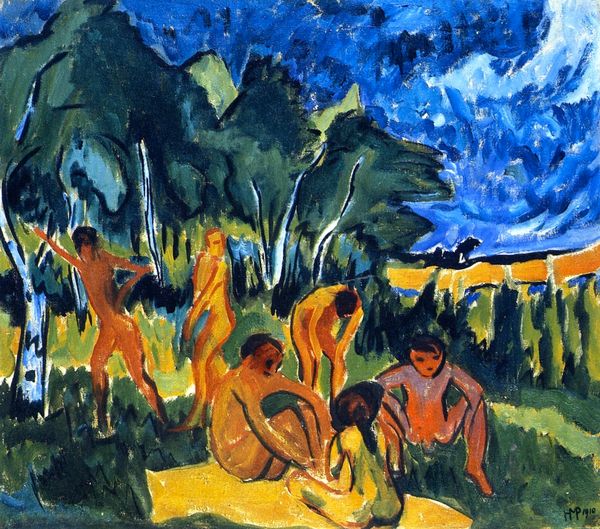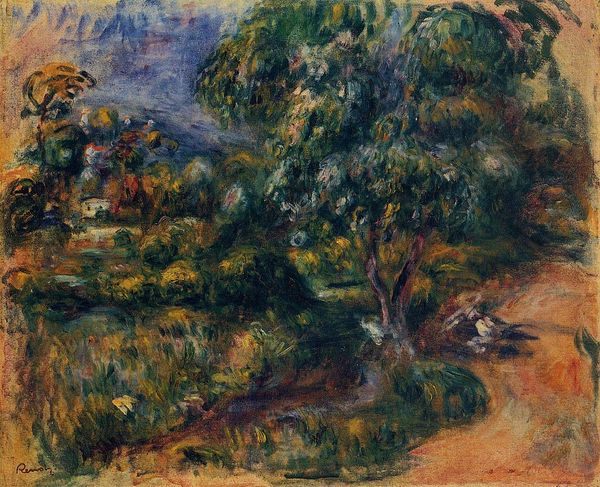
Copyright: Public domain
Curator: Before us, we see Paul Cézanne's 1876 watercolor, "The Battle of Love." It is currently held in a private collection, and presents an unusual, romantic depiction of figures amidst a somewhat blurred landscape. Editor: It feels incredibly dreamlike, almost ethereal. The muted colors, particularly the blues and greens, lend a sense of otherworldly tranquility, despite what seems to be the chaotic activity of the figures. Curator: Cézanne was, if nothing else, always exploring new ways of perceiving form and space. The composition definitely plays with conventional perspective, especially with the integration, or perhaps, superimposition, of figures within nature, almost as if emerging from it. Editor: It’s intriguing how the bodies are both present and almost dissolving into the scenery. I’m thinking of Arcadia, or classical mythology. Do you sense a reference to the pastoral tradition here? It evokes the idea of primal, perhaps instinctual human urges surfacing in the untouched innocence of nature. Curator: Absolutely. Cézanne's engagement with Romanticism and themes of eroticism, as some have suggested, further hints at a consideration of raw human drives, filtered through classical symbols, memory, and their inherent tensions. But there’s a darker undercurrent as well, isn’t there? What’s being won or lost in this battle? Editor: Indeed. The "battle" of the title isn't clear. There’s an uncertainty about power dynamics, about vulnerability. One sees tenderness as well, which complicates the theme considerably. But perhaps it all cycles back to a basic symbol of the era -- life's battles playing out in idyll scenes? Curator: And notice that this work is done in watercolor, a medium that often implies spontaneity and fleeting impressions, something fleeting. This contrasts nicely with the seriousness often associated with history painting, something perhaps intentional on Cézanne's part? Editor: It feels revolutionary to me because of the contrast you point out, especially when seen as a comment on the art of its time -- there are no grand proclamations. But "The Battle of Love", precisely in its understatement and ambiguity, still opens up to questions regarding how we perceive desire, and its constant tug-of-war with self and the external world. Curator: Well said. Perhaps it's Cézanne hinting at love's chaotic interplay of strength, weakness, vulnerability, and, above all, its persistent dance across our cultural consciousness. Editor: Yes, in that respect, a poignant capture that transcends a specific time.
Comments
No comments
Be the first to comment and join the conversation on the ultimate creative platform.
